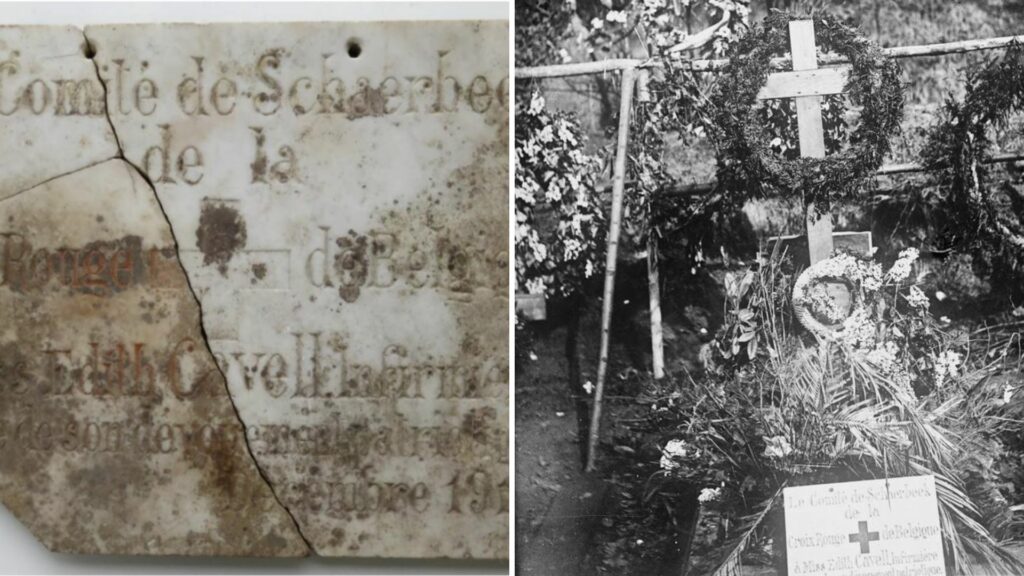An ancestor of the First World War nurse Edith Cavell executed in Brussels in 1915, recently discovered a mysterious plaque, broken and aged, hiding away in an old red family trunk in England.
The plaque is believed to be the original memorial which was placed on the grave of Edith Cavell in Schaerbeek, after her execution by the Imperial German Army during its occupation of Belgium between 1914 and 1918.
Edith Cavell was a British nurse working for the Belgian Red Cross during the war. She became a hero for risking her life while smuggling around 200 captured Belgian, French and British soldiers out of occupied Belgium and into the Netherlands.
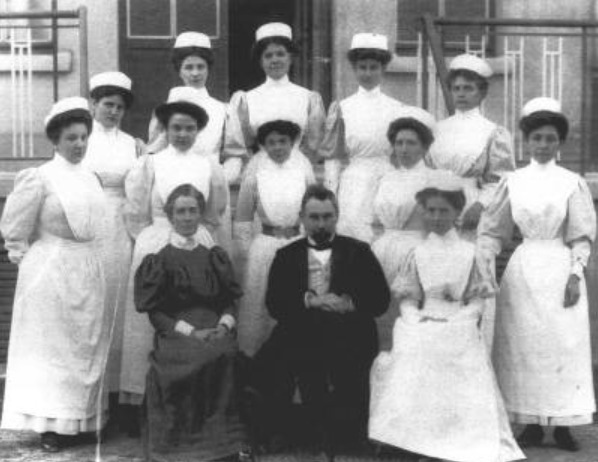
Edith Cavell, on the left sitting down, with her team in Uccle.
After having been caught by the occupation army, Cavell was executed at the Schaerbeek Tir National, the national shooting range, on 12 October 1915 for high treason, amid international outrage.
After the Armistice, Cavell was recognised for her immense sacrifice, immortalised by her final words uttered as she stood in the firing line: "Patriotism is not enough. I must have no hatred or bitterness towards anyone."
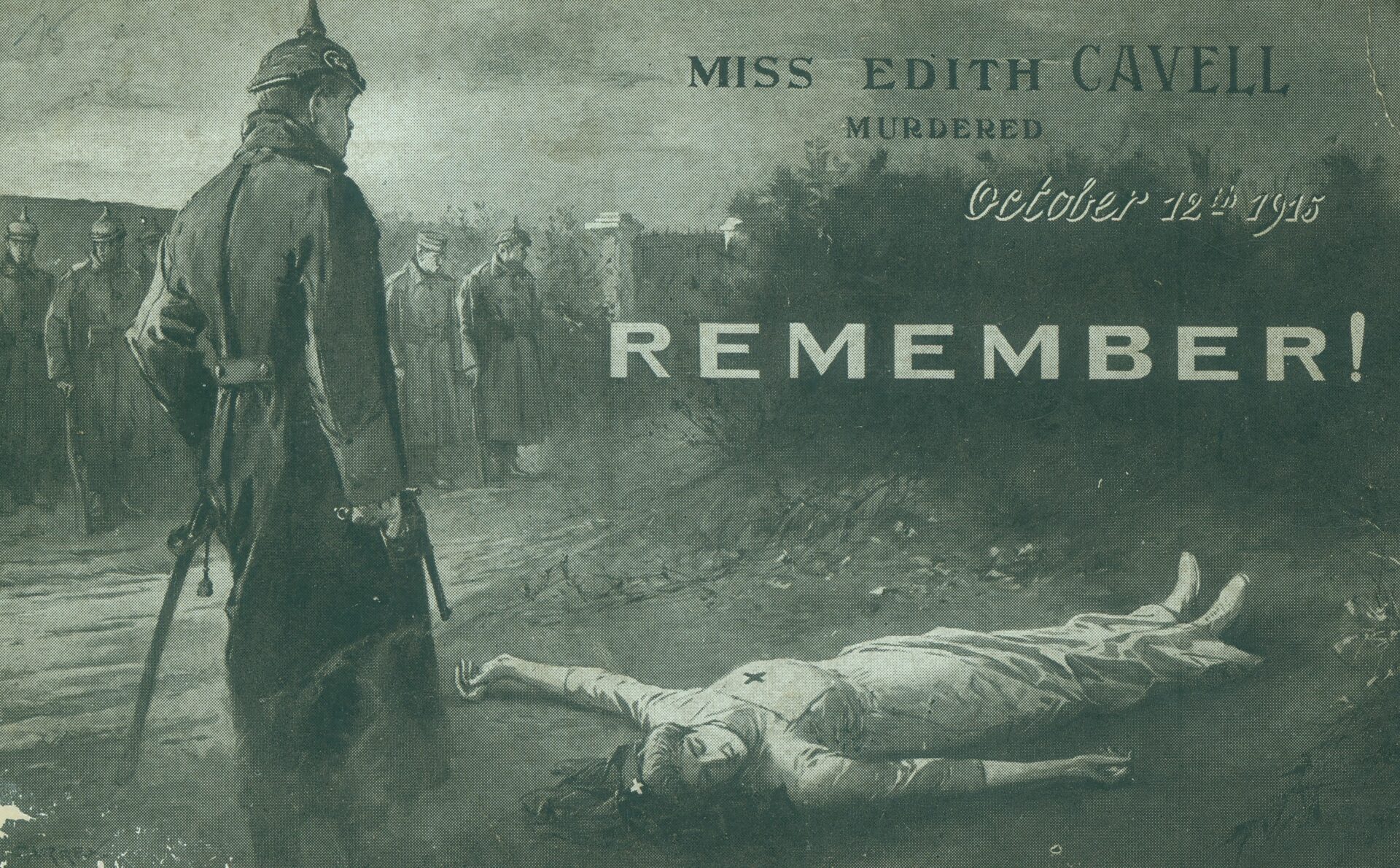
International propaganda after Cavell's assassination. Credit: VisitFlanders
Over a century later, the original plaque which had been placed on her grave in Schaerbeek by the Belgian Red Cross in 1918 was finally rediscovered in Birmingham, England, by Edith’s great-great-nephew, Richard Kent.
Photographic comparisons confirm the authenticity of the newly discovered plaque, which bears a striking resemblance to historical records. Its identical shape, inscription, and two hanging holes leave little doubt, despite age-related wear such as cracks, staining, pitting, and the presence of mud and algae.
Cavell’s body was exhumed on 17 March 1919, and repatriated on 14 May, prior to her state funeral in Westminster Abbey the following day. There is no evidence confirming the plaque was transported with the body, nor how it was damaged over the years.
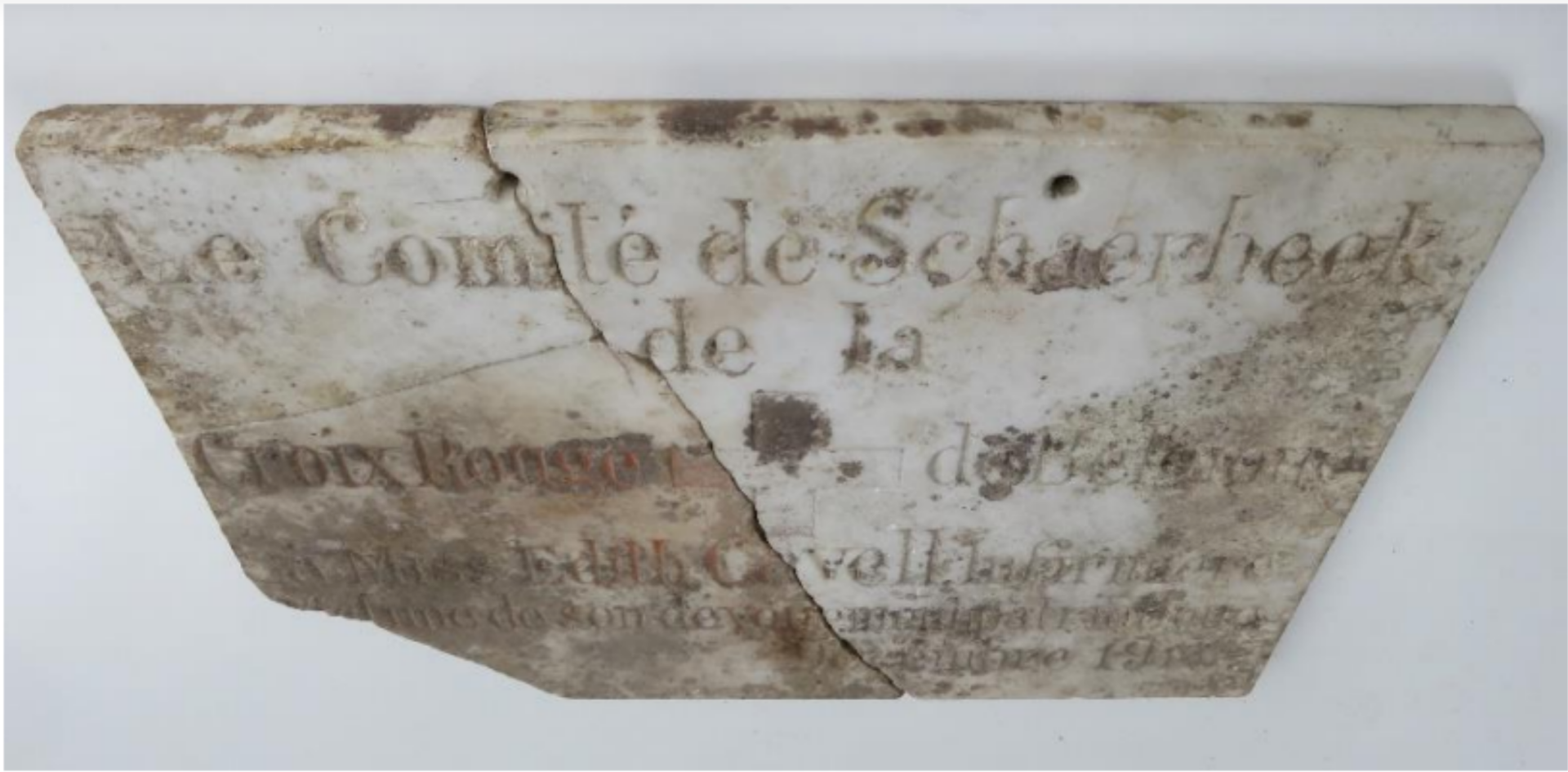
Credit: Edith Cavell Commemoration Group
On Thursday, which marks 108 years since her execution, the plaque will be brought back to Schaerbeek Cemetery in a special ceremony organised by the Deputy Mayor of Schaerbeek Quentin van den Hove and the Belgian Edith Cavell Commemoration Group.
"When the Edith Cavell Commemoration Group approached us, we felt deeply honoured and immediately recognised Schaerbeek Cemetery as the perfect location to unveil the plaque," van den Hove said in a press release.
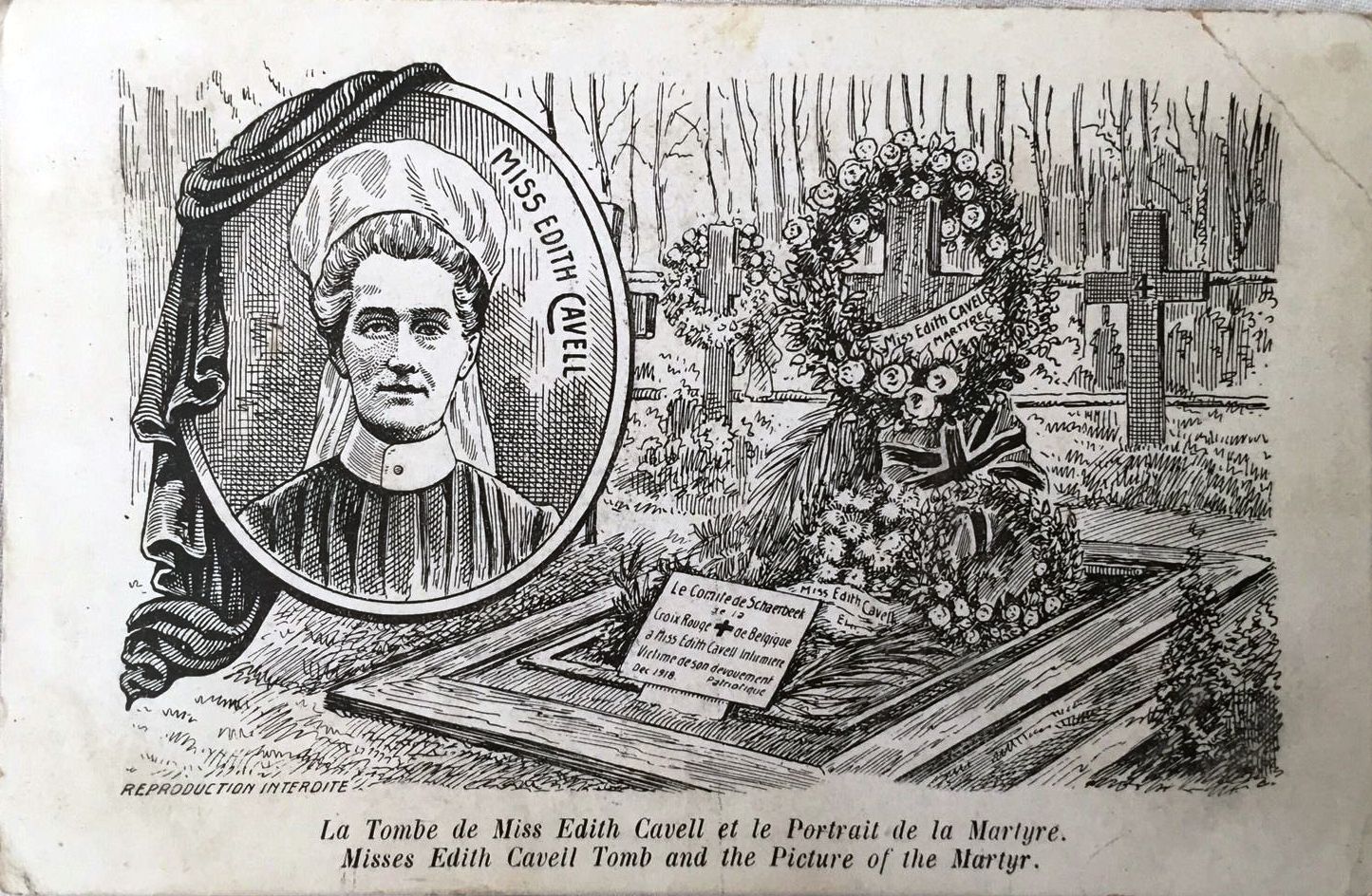
The original plaque can be seen in this etching.
The deputy mayor’s cabinet is currently engaged in initiatives aimed at commemorating the World Wars and honouring war heroes. "It is the perfect opportunity to honour another executed First World War hero," Deputy Mayor van den Hove told The Brussels Times.
“This is part of a broader plan that includes an exhibition next year in the town hall made by and mainly for students to commemorate the two world wars,” he continued.
Women war heroes
The Brussels-Capital Region has been taking steps to feminise public spaces, recognising the invaluable contribution of women to the city’s history. Cavell is part of a long list of women resistance fighters, with Schaerbeek being the home to many during the World Wars.
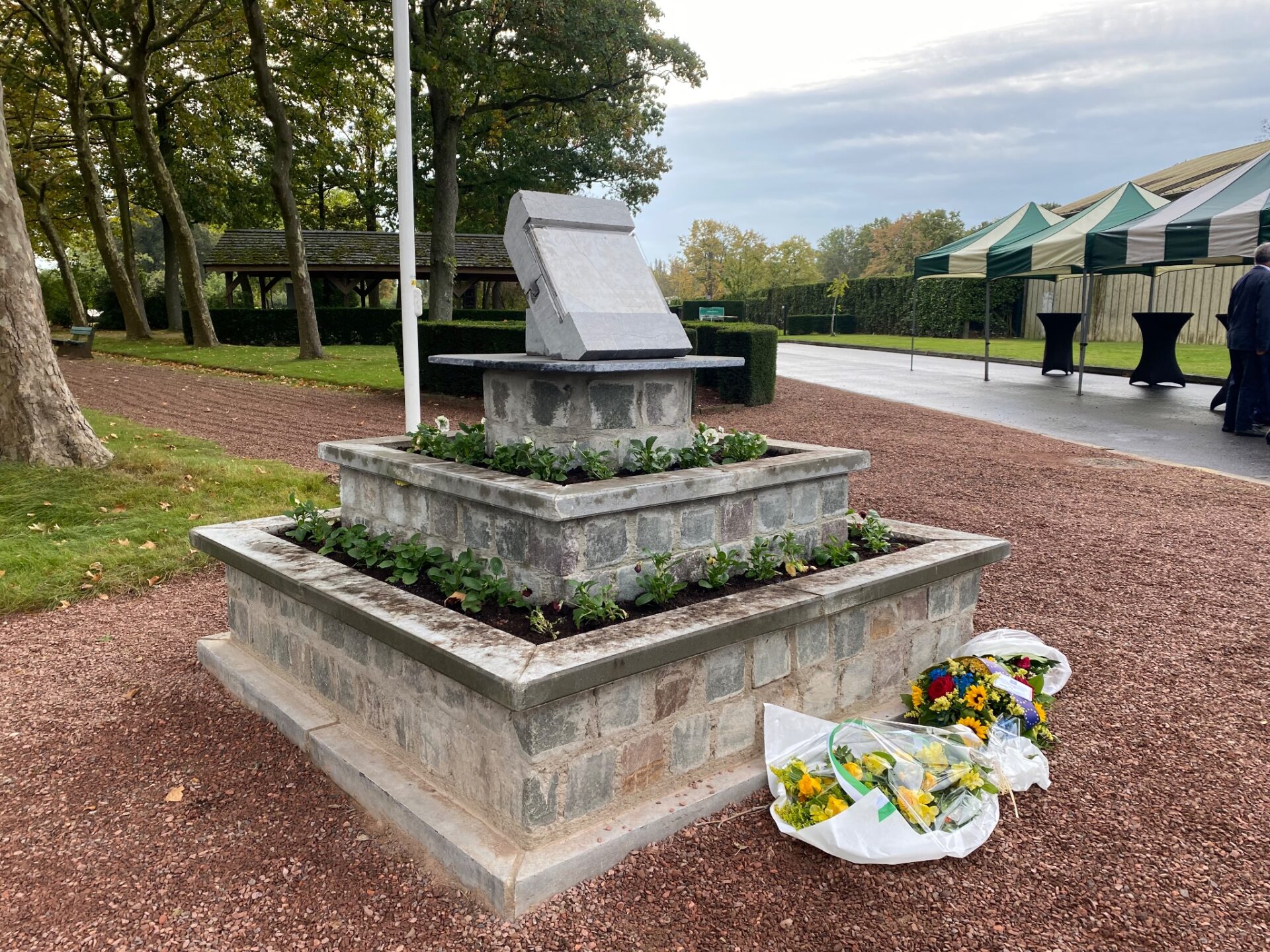
The Plaque was unveiled in Schaerbeek Cemetery today during a special ceremony. Credit: Cabinet of Quentin van den Hove / Mira Kaloshi
The municipality’s cemetery has a monument at the entrance for Belgian spy Gabrielle Petit and is also the burial site for Second World War heroes Andrée de Jongh and Elsie Maréchal. Van den Hove wants to name a street after Maréchal, who died last year, in order to preserve her legacy and ensure these women heroes are not forgotten.
“By naming streets after notable women, we not only rectify historical imbalances but also inspire future generations to break barriers and make their own mark on society,” van den Hove concluded.

